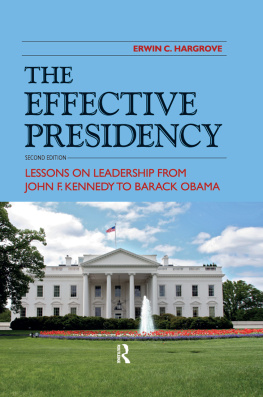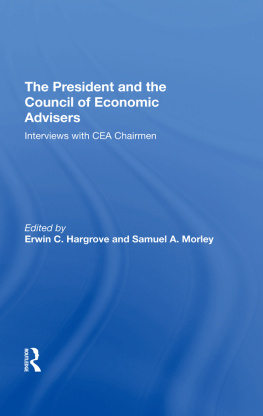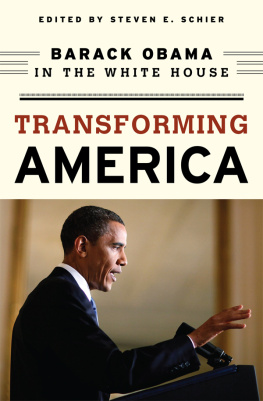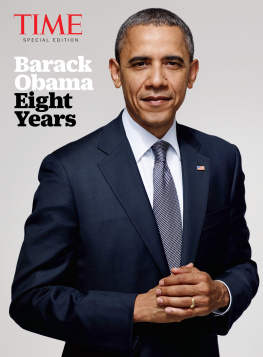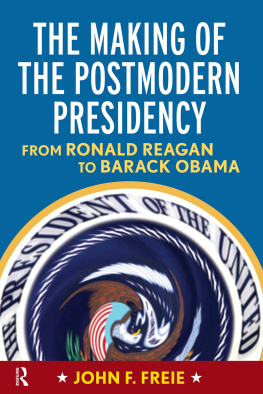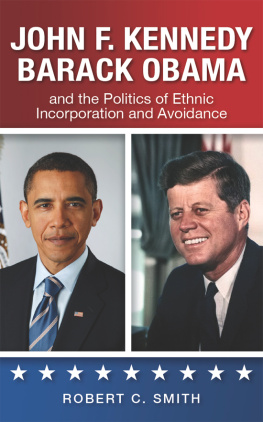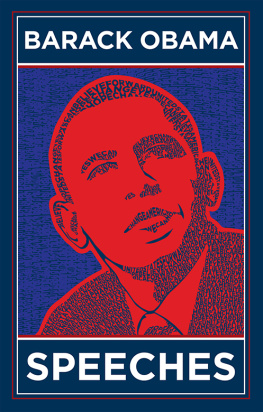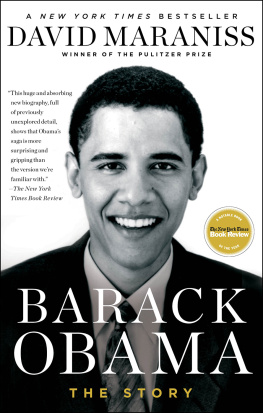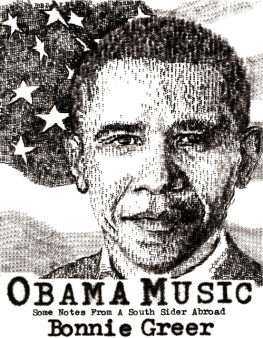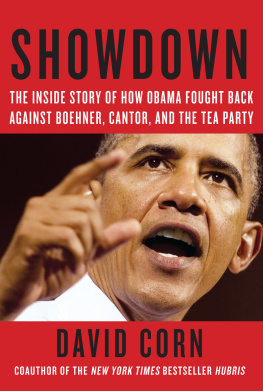The Effective Presidency
LESSONS ON LEADERSHIP FROM JOHN F. KENNEDY TO BARACK OBAMA
Erwin C. Hargrove
First published 2014 by Paradigm Publishers
Published 2016 by Routledge
2 Park Square, Milton Park, Abingdon, Oxon OX14 4RN
711 Third Avenue, New York, NY 10017, USA
Routledge is an imprint of the Taylor & Francis Group, an informa business
Copyright 2014, Taylor & Francis.
All rights reserved. No part of this book may be reprinted or reproduced or utilised in any form or by any electronic, mechanical, or other means, now known or hereafter invented, including photocopying and recording, or in any information storage or retrieval system, without permission in writing from the publishers.
Notice:
Product or corporate names may be trademarks or registered trademarks, and are used only for identification and explanation without intent to infringe.
Library of Congress Cataloging-in-Publication Data
Hargrove, Erwin C.
The effective presidency : lessons on leadership from John F. Kennedy to Barack Obama / Erwin C. Hargrove. Second edition.
pages cm
Includes bibliographical references and index.
ISBN 978-1-61205-433-9 (hardcover : alk. paper)
1. PresidentsUnited StatesHistory20th century. 2. PresidentsUnited StatesHistory21st century. 3. Political leadershipUnited StatesHistory20th century. 4. Political leadershipUnited StatesHistory21st century. 5. United StatesPolitics and government20th century. 6. United StatesPolitics and government21st century. I. Title.
JK516.H255 2014
973.92092'2dc23
2013025813
Designed and Typeset by Straight Creek Bookmakers.
ISBN 13: 978-1-61205-433-9 (hbk)
ISBN 13: 978-1-61205-434-6 (pbk)
Contents
This book compares ten successive presidents according to their contributions and their mistakes in the stream of American history. My attention is on the decisions and actions of presidents in historical contexts and in the institutions within which they worked. One may generalize about the ability of individual presidents, in comparison with others, in varying historical contexts. This is a challenge to both political scientists and historians to compare presidents and find generalizations about when they may make a difference in history.
Much of my work on the presidency has had a normative cast. I have always been concerned with the uses and abuses of power in the presidency, in constitutional terms, and in regard to truth telling and deception. Leaders of strong ambition and talent are called to be president, often in difficult times. But they may also create false crises, and we must always be ready to withdraw our mandate from them. The study of the personality and character of presidents, which is often seen as an uncertain sidebar in presidential studies, is a central normative question.
Three of my friends in Nashville have read each chapter of the book as it was being written and have given their advice in detail. I have used them as sounding boards for clarity and persuasiveness of writing, and they have been invaluable in their help. They are Jacque Voegeli, an American historian who also provided his expertise, and Jack May and Clay Bailey, businessman-lawyer and attorney, respectively. The idea for this book grew out of an undergraduate seminar in the Vanderbilt history department that I taught in the spring of 2004. The course went so well that I decided that it might become a book, and I am grateful to the good students in that seminar. My writing has always been helped by my teaching.
Charles O. Jones, Stuart E. Eizenstat, and Alonzo L. Hamby read the manuscript for the press and gave both detailed advice and a broad critique, which helped me to raise the theoretical themes of the book beyond the separate profiles of presidents. Jennifer Knerr has been a creative, constant, encouraging friend as editor. The book is much better because of her advice. Finally, my wife Julie always smoothes my life and is the wind at my back as I work.
With the election of Barack Obama, the first African American president, in 2008, expectations of presidential greatness soared. After a first term filled with both great successes and disappointing setbacks, such expectations have become more moderate and a sense of pragmatism has taken over.
American political legend celebrates presidential greatness as the key to progress in American history. We have had a few great or near great presidents by general acknowledgement: Washington, Lincoln, and Franklin Roosevelt as great with less agreement on the near greats: Jackson, Theodore Roosevelt, and Truman usually make the list. The implicit definition of great in these assessments covers three things: (1) extraordinary political talent, (2) historical opportunities for creative leadership, and (3) a lasting contribution to American history. A few worst presidents always make the list: Buchanan and Harding, because they faced intractable problems or were incompetent.
How does one assess the other presidents? Few meet the criteria of greatness, but we lack a standard for effectiveness and often measure our president against the great ones. I suggest that we define an effective president as a national leader who makes the most of his or her political opportunities. The effective president is able to find that area of the politically possible and act to achieve that goal. The effective president may also stretch what is possible by his or her leadership. All presidents cannot and need not be great, but we hope that most would be effective. Effectiveness also extends to the ability to face and resolve national problems and move the country past old problems to new ones. Problems must be defined and redefined continually in American democracy, and this is the primary task of presidents. Our ideal should not be that of the great, heroic leader who transforms history in broad new directions, like Lincoln or Franklin Roosevelt. Such leadership comes only in great national crises. We require leaders who continually remind us of who we are and where we might go.
Popular expectations yearn for greatness. The candidates for president in any given election cycle always seem to fall short of such expectations because, as Shakespeare depicts King Henry V saying before the battle of Agincourt, without ceremony the king is but a man. Candidates, without the mantle of office, are just men and women.
The desire for presidential greatness in the twentieth century was strong during two world wars and a severe depression. This desire was sustained by the progressive interpretation of American history in which presidents are the heroes of reform and spokesmen for the nation against a parochial Congress. Franklin Roosevelt was the implicit model against which his successors were compared. Leave aside the fact that his second term was a seeming failure and that he lost his grip on affairs toward the end. His halo effect is seen in the ways in which his successors have been seen to fall short of his great political skill. Dwight Eisenhower was parodied for lacking Roosevelts skill, even though evidence of his very different talents is now apparent.
It was not until Ronald Reagan invoked Roosevelt as his model president and proceeded to reveal political skills not unlike FDRs that conservatives, who had stood outside the progressive myth, began to understand the power of the presidency. Republican politicians now invoke Theodore Roosevelt as an icon.



